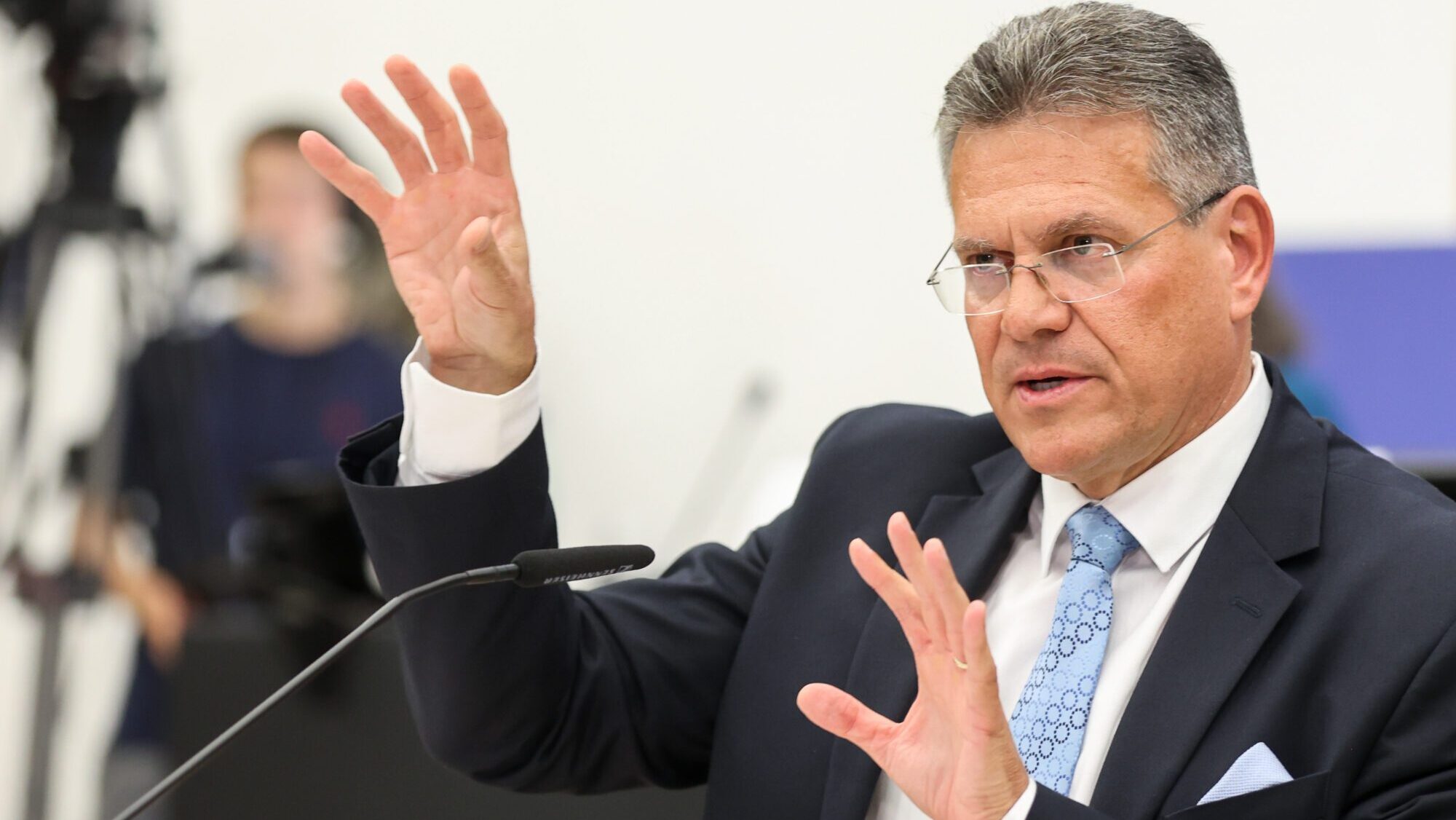
Maroš Šefčovič
Photo: Alexis HAULOT © European Union 2023 – Source : EP
A former Slovakian diplomat, known for his dissident opinions on immigration and LGBT issues, appears set to become the EU’s top green official. This is happening, ironically, with the support of socialist MEPs, while conservatives raised questions about his alleged pro-Kremlin sympathies during a parliamentary cross-examination in Strasbourg Tuesday, October 3rd.
Maroš Šefčovič, who ran as a presidential candidate in 2019 for Smer, the anti-NATO populist party which triumphed in the Slovak elections over the weekend, faced tough questions from MEPs. He appears poised to fill the void in Berlaymont left by Frans Timmermans, the architect of the Green Deal, who left his position to fight domestic Dutch elections in July.
Following Timmermans’ resignation, Commission President Ursula von der Leyen decided to split the green portfolio into two, with former Dutch Deputy PM Wopke Hoekstra struggling to convince socialist MEPs to back his bid to take up the green job alongside Šefčovič due to his neoliberal fiscal outlook.
Despite relations between the centre-right EPP and the socialist S&D souring in the aftermath of the passing of the Nature Restoration Law, and accusations by the Left that the EPP is throwing green issues under the bus to placate populists, both Šefčovič and Hoekstra are expected to be approved. This suggests that the centre-right and centre-left can still cooperate in Brussels.
During Tuesday’s session before the parliament’s environment committee (ENVI), German CDU MEP Pieter Liese expressed displeasure with Šefčovič, accusing him of downplaying his potential support for the Kremlin. Liese asked whether the Slovakian would object to cutting Europe’s reliance on Russian gas, given his home party’s stance.
"I ask, given your ties with SMER and Fico, how resolutely will you defend EU Parliament's policy for being completely independent from Russia? Can you stand firm if Fico opposes it?" asks @peterliese during #Sefcovic #EPHearing pic.twitter.com/qy1HBrRJd7
— EPP Group (@EPPGroup) October 3, 2023
Beginning his career as a Russian-educated communist official, Šefčovič climbed up the diplomatic and EU ladder in the post-Cold War era. He took a hardline stance against Angela Merkel’s controversial asylum policies and opposed gender ideology while being active in domestic politics.
Slovakia has unnerved the EU with last week’s election of the social-democratic Smer party, which is led by former PM Robert Fico and explicitly critical of NATO. The election comes as the Slovakian economy still reels from the effects of sanctions caused by the Ukrainian war.
While still nominally a member of the progressive S&D group, Smer has caused tension within the parliamentary group in Brussels for its stance on the Ukrainian crisis, its socially conservative positions, as well as its willingness to align with populists.
Despite this, the S&D resolutely supported Šefčovič throughout the hearing despite criticism from the EPP. The Slovakian official, who already serves as a senior Commissioner, presented a plan during the hearing to combat microplastics and ensure the fair distribution of green funds.
The only heated moments in the three-hour-long morning hearing occurred when EPP MEPs questioned Šefčovič on the impact of the Green New Deal on farmers. Conservatives appeared to be shifting towards anti-green populism, particularly in light of the recent agrarian protests in the Netherlands.
Very vague answers from #sefcovic #ephearing if there will be more Green Deal legislation or if the focus will be on implementation. Not assuring for #farmers.@EPPGroup @LinsNorbert @peterliese
— Hildegard Bentele (@hildebentele) October 3, 2023
Šefčovič is expected to be formally appointed to lead the EU’s Green New Deal this Thursday, but is likely to be in the role just for a few months before the Commission changeover in the months after the European elections.
